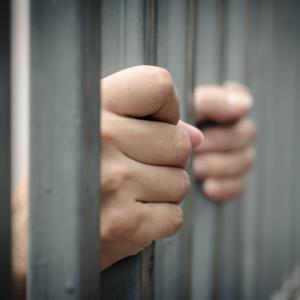
Dr. Kevin Riggs pastors Franklin Community Church in Franklin, Tenn. He is also a college/seminary professor and has written two books, Failing Like Jesus (Randall House Publications, 2010) and Evangelism for the 21st Century (Evangelical Training Association, 2014). Kevin blogs regularly at www.profrevkev.com and can be followed on twitter @riggs_kevin. He lives in Franklin, Tenn., with his wife, Misty.
Posts By This Author
Standing Against the Death Penalty: It’s About the Families of the Victims
“We cannot endure even to see a man put to death, though justly…We, deeming that to see a man put to death is as much the same as killing him” (Athenagoras of Athens, a Christian philosopher writing a defense of Christianity, speaking against state-sponsored killings and abortions, around 177 A.D.)
I am not sure where it originated, but somewhere someone started a rumor that if you are against the death penalty then you are soft on crime and care more about the guilty than the victim. Nothing could be farther from the truth!
Through marriage, a close relative of mine was murdered. I officiated the funeral. I attempted to comfort my family. I know the pain and evil of murder. I also know the pain and evil of a justice system that freed the killer after a few short years behind bars.
As a minister, and more importantly as a follower of Jesus, I take his words about visiting prisoners seriously (Matthew 25:36). I believe in forgiveness and grace and mercy. I believe in the Great Commandment (Matthew 22:34-40). I also realize you don’t get placed on death row for being a boy scout. People do need to pay for their crimes. The more serious the crime, the more serious the penalty. But ultimately, as a follower of Jesus, I believe in reconciliation. I believe in redemption. I believe no one is outside the realm of God’s mercy and grace.
The Biblical Case Against the Death Penalty, From a Former Supporter
“Capital punishment is against the best judgment of modern criminology and, above all, against the highest expression of love in the nature of God” (Dr. Martin Luther King Jr.)
I despise labels, but I guess you can’t get away from them. For example, I am called an American (a label). I would prefer to be called a United States Citizen because the term “American” is ethnocentristic. The term should mean I am part of the American continents, but it is never used that way. “American” is almost always used to refer to a person who lives in the United States. However, Canadians and Mexicans are also Americans; and so are Hondurans and Brazilians.
I wish I could simply be called “Christian.” But that label necessitates the need for additional labels. Am I Protestant or Catholic? Am I orthodox or neo-orthodox? Am I a fundamentalist, an evangelical, or main-line? Am I emergent, traditional, liberal, progressive, or contemporary? To which denomination do I belong, or am I non-denominational? Maybe I am inter-denominational? Am I charismatic or cessastionist?
It’s maddening!
My preference would be to be called a follower of Jesus. But what does that mean?
Then there are political labels … and they are the worst!
Am I conservative or liberal? Am I a Republican or Democrat or Independent or Libertarian or something else? Am I pro-life or pro-choice? Am I a patriot or and antagonizer? Am I a capitalist, socialist, or communist? Where do I stand on gun rights? What about human rights, or same-sex marriage, or LBGT issues, or immigration, or Obamacare, etc., etc., etc … blah, blah, blah …
Why can’t I just be me?
It’s a lost cause. No matter how hard I try not to be boxed in, people label me. So, let me give you my best shot at who I am based on labels. (Of course, if your definition of the labels is not the same as my definition, then we will have a hard time communicating.) Here goes:

